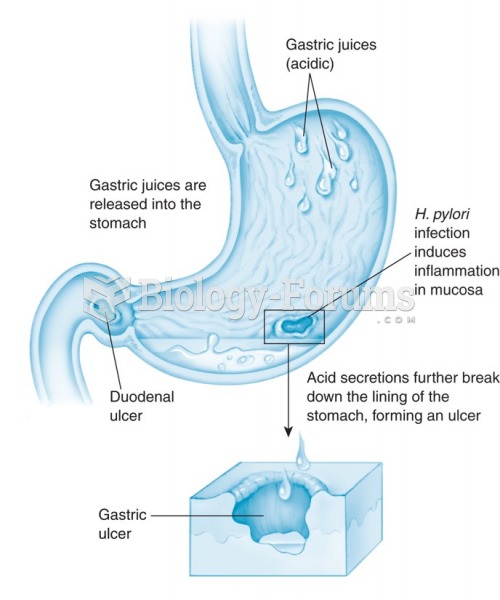|
|
|
Complications of influenza include: bacterial pneumonia, ear and sinus infections, dehydration, and worsening of chronic conditions such as asthma, congestive heart failure, or diabetes.
All patients with hyperparathyroidism will develop osteoporosis. The parathyroid glands maintain blood calcium within the normal range. All patients with this disease will continue to lose calcium from their bones every day, and there is no way to prevent the development of osteoporosis as a result.
On average, the stomach produces 2 L of hydrochloric acid per day.
Egg cells are about the size of a grain of sand. They are formed inside of a female's ovaries before she is even born.
Earwax has antimicrobial properties that reduce the viability of bacteria and fungus in the human ear.
 Part of the Hubble Ultra-Deep Field image showing a typical section of space containing galaxies int
Part of the Hubble Ultra-Deep Field image showing a typical section of space containing galaxies int
 Cranial capacity has increased approximately fourfold over the last 3.5 million years of hominin evo
Cranial capacity has increased approximately fourfold over the last 3.5 million years of hominin evo





